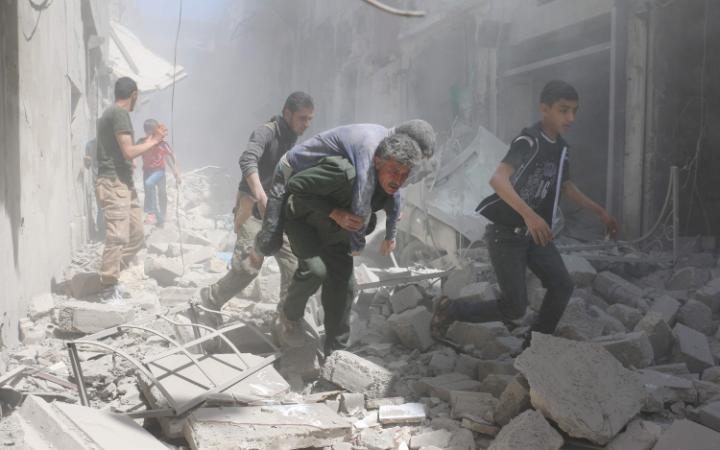Beirut-Syrian doctor Zahed Qaterji, 29, known in the city of Aleppo in northern Syria by the name of “Hamza Khatib” has just finished his 240-hour shift of continuous relief at Al Quds Hospital, which is located in an area controlled by the opposition.
The number of the current medical crew working at Al Quds hospital is very limited, after the hospital was attacked on April 27 leaving three doctors and more than 10 nurses and a number of patients dead. Several people were also injured after Russia intensified its campaign on Aleppo.
The medical crew now founds itself besieged and having difficulty transporting injuries because the Castello road, which was the only left crossing line in the direction of the countryside and Turkey, has been transformed into a “death path” due to the continuous shelling by the regime’s warplanes and artillery.
Qaterji told Asharq Al-Awsat newspaper the number of doctors working in the same area in Aleppo does not exceed 35. He said all doctors were facing “unprecedented challenges.”
Qaterji is married and has a five-month-old baby girl.
The doctor said that while transporting an injured to the hospital, “we place the lives of the patient, the person accompanying him, the driver and his assistant in danger, because the four persons are forced to cross the Castello road which is now similar to a suicidal attempt.”
In the past few days, three doctors working in the city have been trying to re-enter to Aleppo through the Castello road. However, they have not succeeded so far.
Eight hospitals are currently operating in the Eastern part of Aleppo, most of them previously hit by shelling. Therefore, several hospital rooms were moved to underground floors that were recently built to protect the safety of patients.
Qaterji said that two trucks loaded with medical equipment for Al Quds hospital were unable to enter the city through the Castello road.
He said that one surgeon carries out around 10 surgeries daily, a number that doctors cannot support on the long run.
“We are playing with death on a daily basis. So, either we survive or we die,” the doctor said.
